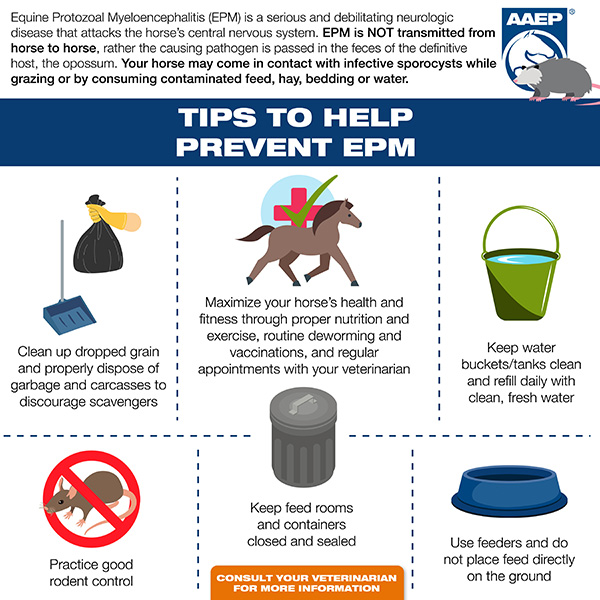Tips to Help Prevent EPM

Infographic courtesy of EPM.
Fall is right around the corner, and research shows this season brings a higher risk of Equine protozoal myeloencephalitis (EPM). This is likely due to increased transportation to and from major horse competitions, and also to larger amounts of carrion in the diet of the opossum, the definitive host for the primary EPM-causing parasite in horses (Sarcocystis neurona.)
Efforts towards development of a vaccine for EPM have proven ineffective to this point in time, but there are several things horse owners can do to protect their horses from infection. The list includes good house-keeping practices such as effective rodent control, properly disposing of garbage and carcasses, keeping feed rooms and containers closed and sealed, using feeders rather than feeding directly on the ground, keeping water tanks clean, and maximizing your horse’s health and fitness in general.
Consult your veterinarian for more information about EPM prevention and treatment options, and about improving your horse’s immune system. To read more about EPM, visit the AAEP website- EPM- Understanding Debilitating Disease.
(reprint provided with permission)










